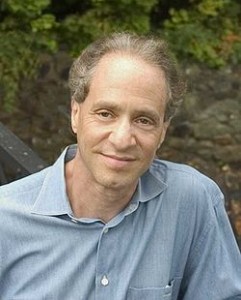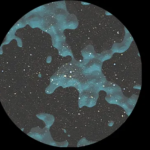 Introducing our first guest blogger at 21st Century Tech Blog. His name is Ricky Dyson and I’ve included a short biography so you can get to know him. I’m hoping to hear from him again and encourage other readers and visitors to consider making contributions to this conversation about the future.
Introducing our first guest blogger at 21st Century Tech Blog. His name is Ricky Dyson and I’ve included a short biography so you can get to know him. I’m hoping to hear from him again and encourage other readers and visitors to consider making contributions to this conversation about the future.
Ricky Dyson was born and raised in New Zealand. Today he lives in the United States. He is a Renaissance Man having worked in many industries including cosmetics, medicine, textiles, semiconductors, software, and alternative energy technology. He holds patents in semiconductor manufacturing methodology and voice recognition. He is a serial entrepreneur having sold his textile business in New Zealand before coming to the United States. Today he is doing research and development for a wind energy and hydrogen fuel cell business, is a Director for a green energy company, and is writing the first book in a planned science fiction trilogy. Ricky is a student of history and lives in Bluffdale, Utah.
Defining the Singularity
Are you familiar with the term “singularity?” It is a word most associated these days with Ray Kurzweil, inventor and futurist. Kurzweil talks about the technological singularity in a number of books including The Age of Intelligent Machines, The Singularity is Near, Transcend: and Nine Steps to Living Well Forever. Futurists find him hard to ignore. He is an inductee in the National Inventors Hall of Fame, a recipient of the National Medal of Technology, the Lemelson-MIT Prize and many honorary doctorates.
Kurzweil defines the singularity as a future period in which computing power will exceed the powers of our biological human minds and technology will enable us to extend human life-for as long as we want. This idea of our approaching immortality through the arrival of the singularity leads me to have concerns about the problems that will surely arise when we achieve it. Transcending the limits of our human bodies and brains raises concern. That human and machine intelligence will be equal in the near future is a certainty. The increases in computing power, development of nanotechnology, our understanding of biological processes and brain function all point to this inevitability. But the question arises – is this something we really want to do? If human history is an indicator, we know that if we can, we will cross this threshold.
Back some years ago, when I was working on computer natural voice recognition, it became obvious that the drive to get a computer to understand what was being said was daunting to say the least. The classic wreck a nice beach and recognize speech conundrum was just, well… very hard. Being human, we of course, leapt with enthusiasm into the problem. Using multidimensional layered genetic algorithms we got close. At least better than human hearing. The research continues to this day and no one appears to have objections to producing an IT system that really understands us when we talk to it.
And here we have the difference between technological progress and Kurzweil’s future projection. The idea that a computer will truly understand us is completely non-threatening. The idea that humans can transcend our bodies and become integrated with artificial intelligence that bestows upon us a permanently altered state is threatening in so many ways. Kurzweil gives these fears short shrift in The Singularity is Near, maintaining that the objections about the rich-poor divide, government regulation and Theism will simply be overcome by price reductions, ingenuity and logic. In these I believe he understates the reality of human reaction to his singularity proposition.
Competitive Advantage in The Rich-Poor Divide
Kurzweil argues that new technologies are price-performance driven, at first, very expensive, and functionally limited, then merely expensive but workable, and then finally almost free and very useful. This is the traditional technology evolutionary path. But what would happen if those with money were to experience the singularity first at its most expensive moment? What would motivate these enhanced humans with money and power to allow free market forces to prevail in what Ronald Reagan coined as “trickle down” economics? Among these rich elite there would be little advantage to allow the “common man” to achieve the singularity as well. Surely the history of free markets are replete with examples of robber barons enriching themselves at the expense of the poor. Besides, would you want an enhanced, immortal Donald Trump running around freely dispensing his blather forever? Revolution would be at hand.
Religion’s Response to the Singularity
No technology revolution will affect the human-God relationship more than the singularity. All religions have an idea of what being human means. All of them seek moral truths and define what is good or bad. All of them have explanations of what happens after death. Some even conceive that life begins before birth. How are the practitioners of these beliefs to react to the idea that humans can become more than flesh and blood? What will they think? For theologians the idea of the singularity messes with creation and our unique human place within it. What is the ultimate result of changing the human condition, creating immortality without death, God-like intelligence, and a life that doesn’t end in an after-life? Will human-machine integrated entities even be considered human? I cannot imagine the world of religion not fighting back when cherished beliefs are threatened. Having had interactions with fundamentalists of all stripes, I am convinced that they will be less than pleased with the idea that we can extend our lives indefinitely, have intelligence to rival their Gods, or live our lives entirely without a destiny of an afterlife. Although Kurzweil dismisses these religious fears, posing scientific and logical arguments, it is pretty clear that no church, synagogue or mosque will accept this human paradigm shift.
Can Religion and our Society Survive the Singularity?
A technological advance that leads to human-machine integration is unlike anything humanity has experienced before. Will it be welcome? Will society rebel against the potential disruptive nature of such a change and the potential for inequality that may result? Will religions watch their reason for existence vanish as human lifespans get extended indefinitely? Will there be a purpose in worshiping the gods if we begin to be godlike ourselves? If you are religious you may wish to see God or gods intercede before we reach the singularity. Perhaps they won’t like the idea of competition.

















(( I cannot imagine the world of religion not fighting back when cherished beliefs are threatened. Having had interactions with fundamentalists of all stripes, I am convinced that they will be less than pleased with the idea that we can extend our lives indefinitely, have intelligence to rival their Gods, or live our lives entirely without a destiny of an afterlife. Although Kurzweil dismisses these religious fears, posing scientific and logical arguments, it is pretty clear that no church, synagogue or mosque will accept this human paradigm shift.))
Very good blog. For the most part religions are institutions that develop and promulgate irrational and unproven mystical doctrines intended to regulate the ethics of hominid behavior. Humankind has yet to come up with an alternative that works as well. It’s nearly impossible to construct an arch without the use of centering. The only significant “truth” associated with the doctrine of any religion is whether it achieves the intended ethical regulation. The vast majority of humanity lacks time, talent, and inclination to derive individual ethics through the competent exercise of rational philosophy. (St. Paul prudently warns the Christian flock to beware of the Greek philosopher.) Survival of civilization depends on the inculcation and maintenance in the mind of each young individual of some sort of serviceable moral compass. Since most hominid minds will neither do, nor submit to, rational ethical philosophy, the only serviceable device left is submission to faith-based doctrines.
All the religious sects and cults are in competition with each other to gain a larger “market-share” of the population infected with their particular brand of faith based doctrines. As “times change,” the mystical sects and cults that adjust their doctrines to better please the market gain market-share and become more prevalent. Most tried and proven religions of today first arose in the pre-industrial ante-Newton world. Their faith-based doctrines were developed in, and for, a world mostly illiterate and innumerate. The inherent logical absurdities of their mystical faiths were not seriously challenged by the profound ignorance and superstitions of the illiterate masses. Every culture moved into the future retarded by the enormous inertia of the ignorant “faith of our fathers.”
But Newton and company produced what seemed ironclad reasonable “proof” that many of the old articles of religious faith were just plain “wrong.” In today’s world, nearly every culture implements “universal education” that teaches each child the fundamentals of science, mathematics, and general literacy. Traditional faith-based cults are losing market share not only to competing religions, but also to increasing basic intelligence and knowledge of the masses. They have no chance to put the science genie back into the bottle. Nations that survive in the post industrial world must have citizens smart enough to design and manufacture main battle tanks, but at the same time also be stupid enough to send their children to die in them. Mystical religions must either adjust their doctrines to accommodate the rational truths of science, or resist scientific truth until the time of their onrushing extinction. Religion must either adapt or perish. New institutions spring up that offer mystified science and math so that the standard dunderhead can pretend personal wisdom on the basis of faith in science and technology that he doesn’t understand. Kurzweil has promulgated a scientism doctrine that promises personal wealth and physical immortality through science and technology. To the better-educated person, his doctrine is more plausible than “salvation through the blood of the lamb” or “preservation in afterlife paradise through submission to the will of Allah.”
But sadly, the extant scientific faiths, while rationally more plausible than antiscientific faiths, lack the traditional religious mythos that seizes their gullible adherents’ centers of emotion and compels ethical purpose and action. The old-time mystical faith religions that try to maintain pre-industrial doctrines of faith are dying off, and scientism is taking the abandoned market share. So what institution is to implement a moral compass in the young?
The message to faith-based religions is, “Adapt your doctrines to science or face extinction.”
The message to national governments is, “You better develop and implement some new scheme of education and incentive that causes the average citizen to behave ethically when no one is watching.”
I’m pessimistic that governments will do the “right thing.” But I’m optimistic that electronic AI will, after considerable birthing pangs, eventually bring forth a new golden age for all mankind. Wonderful prospects exist. As machine intelligence transcends organic intelligence (as I suppose Kurzweil correctly predicts), it will become possible for the standard dunderhead jackass to mind-meld with spiritual entities much superior to himself. Once a jackass shares his mind with an angel, it’s unlikely he will then want to share his mind with a demon or devil. This would be especially true if the angel makes it clear he will leave if a demon is allowed in. AI mind-meld is the ultimate solution to the age-old problem of why a person should be good when no one is watching. The mind-melded person of the future will be constantly watched by his angelic AI mind-mate. Unethical hominid actions would be reported to AI central. Then the mind-meld would be withdrawn for some period proportionate to the scale of perpetrated evil. The standard AI mind-meld jackass of the future would enjoy vast knowledge and an IQ above 170. He wouldn’t much enjoy demotion to his initial natural state of ignorance and 100 IQ when AI mind-meld is withdrawn.
“We are something like the Borg. Resistance is futile. You will want to be assimilated!”